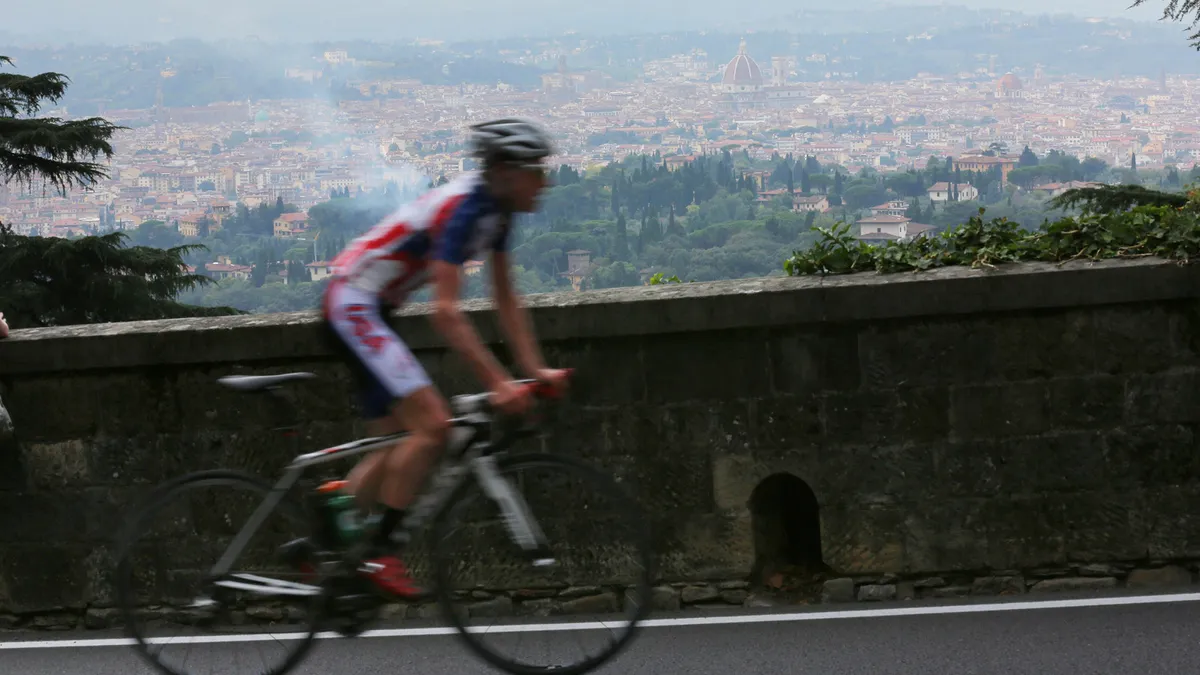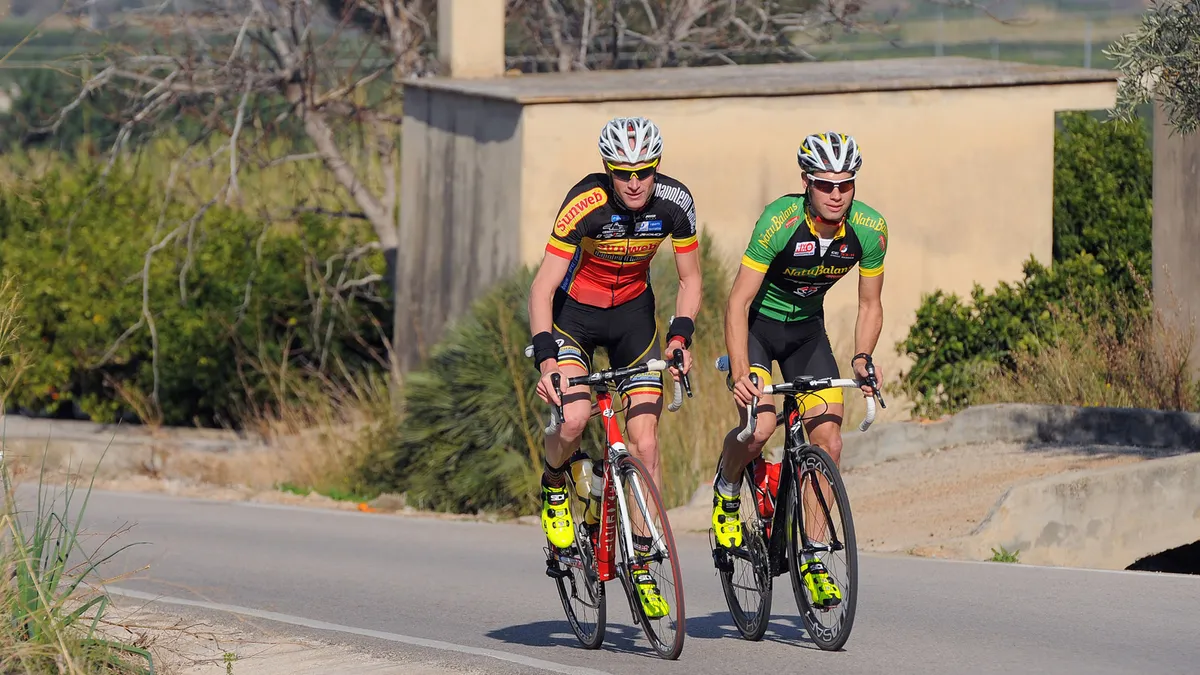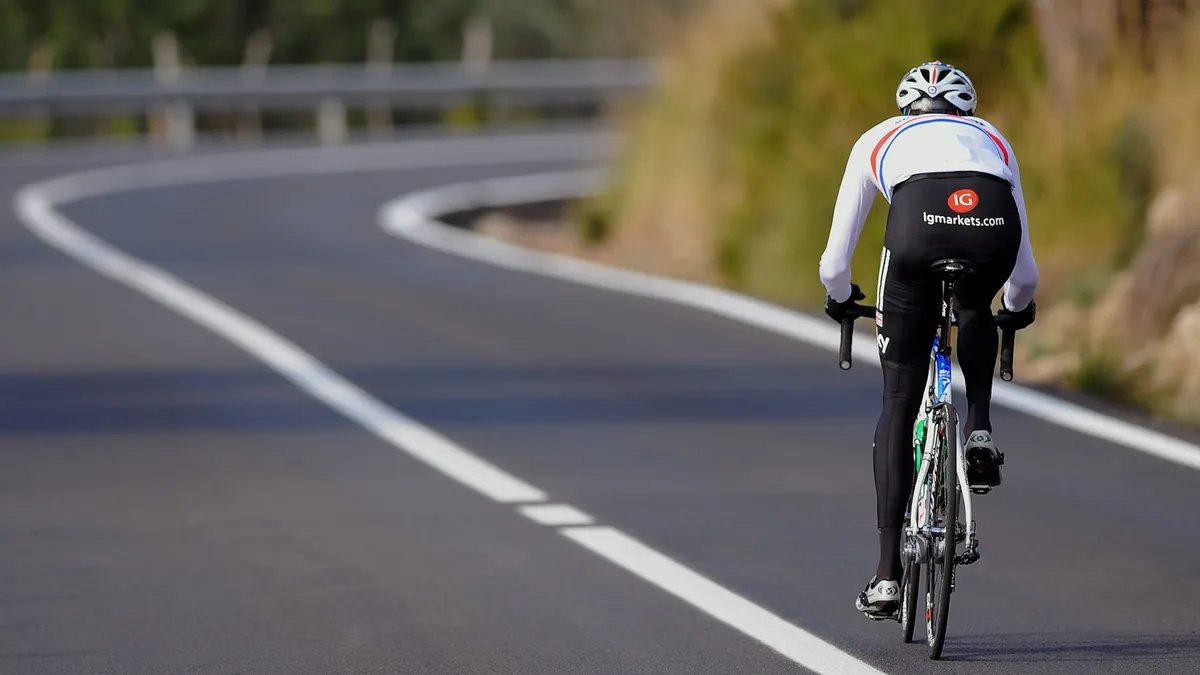Finding the time to balance cycling and the rest of your life can be a challenge. You work long hours, come home and… jump on the turbo trainer. The weekend arrives and it’s a chance to spend some quality time with the family - but not until you’ve got the miles in.
Is it really possible to train, race or take part in big events while holding down a demanding job, bringing up children or – tougher still – doing all three?
The answer is a definite yes, according to Andrew Gillott, senior coaching and education officer at British Cycling. He should know. Not only does he have a busy job, he’s also a father and yet he still manages to find 12 to 15 hours a week to put into his training.
“There are many riders who train and race at all levels who successfully manage to balance this with a full time job and a family,” he says. “True, there’s less opportunity for riding, but then there are plenty of riders with ample leisure time who don’t make the most of it.”
Ian Wilkinson is a good example of a rider with a demanding job who races and wins at an elite level. In the 2009 Tour Series on TV, Wilkinson won a thrilling sprint finish at the Peterborough round, with his front wheel pawing the air.
Treat every time you get on a bike as a training session
Throughout his career he’s combined cycling with his regular job, working as a builder, although his switch to the Halfords Bikehut squad in 2009 – and Endura for 2010 – has meant cutting back on the hours he puts into his business.
Before then, Ian was fitting his training in around 8am to 5pm working hours. After a busy day lugging building materials about, most of us would want to put our feet up with a cup of tea, not head out on the second session of the day, having already ridden on rollers before work.
“I would do maybe up to six hours on my bike, then a weekend race,” he says. Anyone with limited time needs to make the most of it, he reckons. “Training harder is smarter. The key is doing it short and sharp, not just doing junk miles – you race at 30mph not 15mph.”
While not everyone could – or should – ride every session flat out, Gillott agrees with Wilkinson that each ride needs a purpose. “Treat every time you get on a bike as a training session. That doesn’t mean it always has to be fast, painful or intense – it could be a recovery ride – but simply that it should support your goal in some way.”
Set yourself goals
The simple act of setting a goal is also important. If you don’t know what you’re training for, you could be riding steady when you should be going hard, or riding flat out when you’d be better off working on endurance. “By setting specific, measurable, achievable goals, you can make the most of your hours on the bike,” says Gillott.
Even with a clear idea of what you want to achieve, there will still be times when work and the bike come into conflict. The boss wants that report on their desk by 9am the next day, but you’ve planned an evening on the roads.
What do you do? The answer, says Wilkinson, is simple. “Work pays the mortgage so that should come first.” Doesn’t that mean his racing has been compromised? “Many times, but you can race all year round, so there’s always a place and a time to do well.”

The challenge of juggling work and racing is one thing, but balancing your cycling with a family is quite another. Even those of us who enjoy our jobs are usually more than happy to head home at the end of the day and put in reasonably predictable hours. But a family pulls on the heart strings in a way that an office probably never does. What’s more, a family’s a 24/7 commitment.
Balancing training with work and home life
Rob Hayles, the 2008 National Road Race Champion and one of Wilkinson’s team-mates, both at Halfords Bikehut and now as rider-manager with Endura, found out just how tough family life can be in the run up to the 2006 Commonwealth Games in Melbourne, with the birth of his daughter, Maddie.
“Nothing can prepare you for having kids,” says Rob. The stress, the excitement, the sleepless nights – it must have had an impact on his training. Rob acknowledges that it wasn’t easy, “but it surprised me how little sleep I could get away with”.
There’s room for work, family and the bike. It’s a tight squeeze, but it can be done
The really tough bit – both for Rob and his wife Vicky – was that he had to jump on a plane and fly off to the other side of the world within weeks of Maddie’s arrival. “She was born in January and I was off to the Commonwealth Games in February. I went away for three and half weeks,” says Rob.
Fortunately for Rob, Vicky knows all about competing in sport at the highest level, having been an Olympic swimmer. “She’s aware of what I go through and understands what’s needed. She’s really good about it, which helps massively. When I’m away I have to switch off as if they don’t exist.”
Which makes it all the more important to spend time with the family when he isn’t away racing. The key, Hayles says, is plenty of forward planning. “When I was younger my training wasn’t structured. Now I’m much better organised. Cyclists with families need to plan. Get a diary or a wall planner and write down everything you’re doing. Say, ‘this is my time and this is family time’.”
If the pros need to adapt to family life, that goes double for those of us who also need to hold down a job. The double whammy of career and kids can persuade many cyclists to take a few years away from the sport, or to cut back dramatically.
But there’s room for work, family and the bike. It’s a tight squeeze, but it can be done. Dr Auriel Forrester from Scientific-Coaching.com is living proof. “I was head of a university department, a single mother and won four World Masters Track Championships,” she reveals. Forrester believes that it’s important to be realistic about how much time you can put into riding once the work and family have been taken care of, rather than becoming obsessed with finding more time to ride that just isn’t there.

“One question that’s prevalent in cycling is: how many hours per week do I have to do? My answer to clients is the always the same: tell me how many hours a week you have available and we’ll work from there.”
That can mean a change of focus rather than giving up on your goals completely. “Obviously if someone only has four to five hours per week and wants to ride the Etape, we need to discuss what other options there are.”
Instead of heading off on continental sportives, this could mean trying short distance time-trials. Doing shorter, more intense training and brief local races takes up much less time than mile-munching and trips to the Alps, but is still a great way to get your cycling fix and experience the buzz of competition.
Alternatively, riders need to think laterally. “This could mean making use of annual leave, flexi-time, or sneaking off early for a ride when on holiday before the family gets up,” she says.
Commit to commute
The daily commute is another great opportunity for the time-poor cyclist to do two things at once. Nadine Mayhew is a time-trial rider and working mother of two who uses her journey to the office to squeeze more riding into her busy schedule. “The only day I can do this is Wednesdays, because on the other days I have to drop off and collect the girls from nursery. I go to work the long way and come home using an even longer route.”
Like Ian Wilkinson and Rob Hayles, Mayhew is a great believer in making the most of every minute on the bike. For her, that means lots of sessions on the turbo trainer, unaffected by weather and traffic, getting the greatest possible reward for her efforts. “I find this the most time-efficient way of training.”
Time is a commodity she finds is in increasingly short supply. “I work four days a week, Monday to Thursday – 33 hours, in theory – but as I work in IT I often have to work from home late into the evenings and sometimes at weekends, so in reality it’s more like 40 hours a week. That only leaves six to eight hours for training and racing.”
That’s not a huge amount of time on the bike, but Mayhew proves that this is no barrier to being competitive, having won a bronze medal in the veteran ladies section of the 2008 Rudy Project Time Trial Series.

The Rudy Project races take place all over the country, so that means a lot of travelling – another potential source of stress with a young family. Mayhew’s solution is to really get her family involved and make her racing into a day out.
“The kids come and sometimes watch, or my husband finds a playground. When a start sheet arrives one of the first things we do is search on Google Maps for the closest playground!” Once the race is over the family gets an extra reward. “After we try to take them somewhere to make an outing so they also have their fun.”
It all comes back to Rob Hayles’s advice that an understanding and supportive family deserves an understanding and supportive cycling parent. “It’s two-way traffic,” he says. “Family or the bike? Somehow, I’ll always find room for both.”
7 Steps to becoming a super cyclist
1. Plan ahead
Set specific times for work, family and the bike.
2. Be flexible
The demands of career and children aren’t always easy to predict, so be ready for the bike to take a back seat every now and again.
3. Have a goal
You can only train efficiently if you know what you’re training for.
4. Commute by bike
Get to work and get a training session at the same time.
5. Make every session count
An hour’s hard work on the turbo once the kids are in bed is time well spent.
6. Get up early
Train or race early in the morning and you can be home by the time most people are eating their Cornflakes.
7. Give something back
If your family supports you in your racing and training show how much you appreciate it and combine races with a family outing.